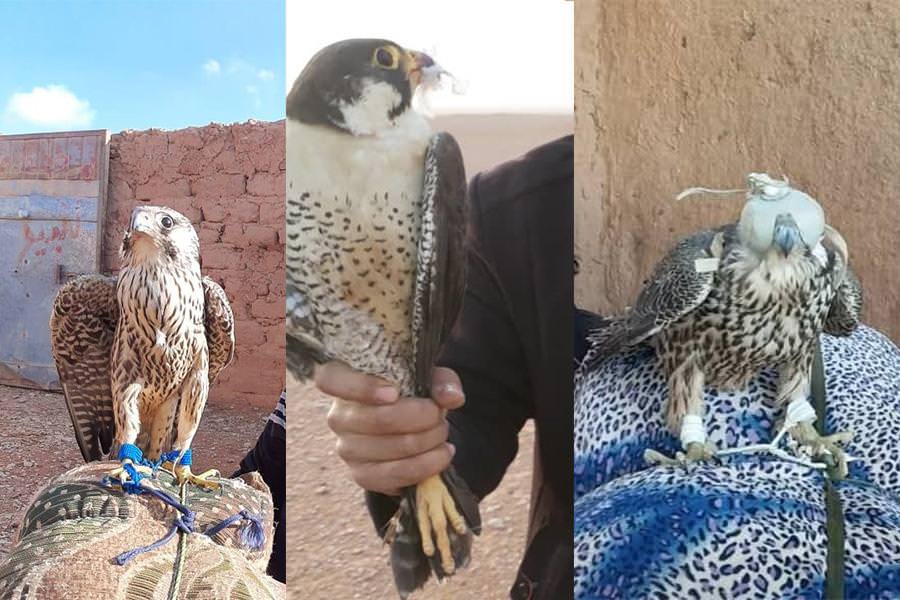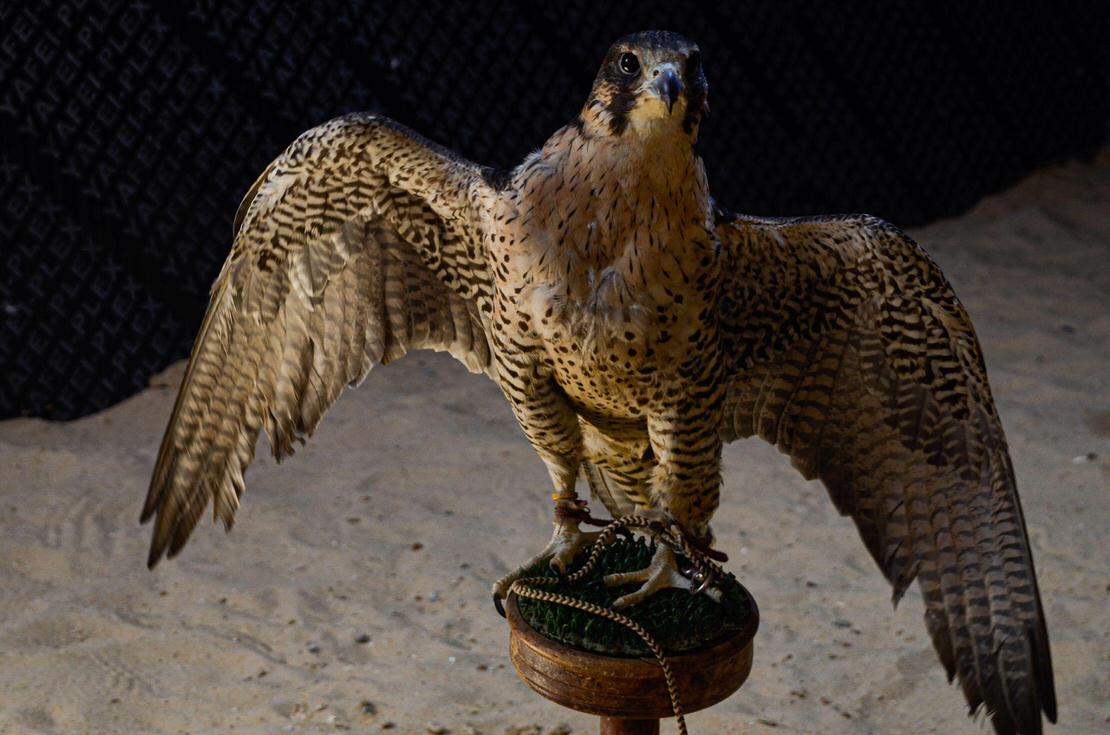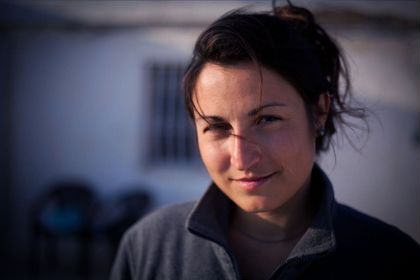Falcon-trapping in a neglected Syrian displacement camp
Guest blog by Lyse Mauvais
Deep inside the southeastern Syrian Badia, next to the border with Jordan, lies Rukban: a forgotten camp home to 10,000 men, women, and children displaced to the desert by war.
Over its eight years of existence, Rukban has been forgotten by the world. Its residents are mostly former rebels (and their families) who fought the regime of Syrian President Bashar al-Assad, still in power. Syrian authorities prevent humanitarian aid from reaching the camp, where healthcare is inexistent and tents are falling apart. The last United Nations convoy came in September 2019. Since then, Rukban residents have survived solely on what smugglers manage to bring in for prohibitive prices.
I first heard about Rukban while working for Syria Direct, an independent media outlet. My Syrian colleagues were among the few people that still cared to cover Rukban. Since then, I kept in regular contact with some of the residents, trying to stay abreast of their latest struggles: scorching sandstorms, flour shortages, the heartbreaking death of several newborns due to the lack of medical supplies.
Amidst all these hardships, happy moments stood out: there were photos of homemade ice cream, improvised swimming pools dug into the sand, and of course, wild-caught falcons.

As a nature lover, it saddened me to see these mighty birds tied down and destined to a life in captivity. I knew that the trade in wild-caught falcons is rampant across the Middle East, with devastating consequences on bird populations.
Still, I could empathise with the men’s joy. Catching a falcon is the dream of many in Rukban: from late August to early November, hundreds of men head out to the desert for weeks on end, hoping to catch a Saker or a Peregrine, which are worth thousands on average on illegal wildlife markets. Last year, six falcons were caught in Rukban and sold for between $1,000 and $25,000 – a fortune that can change the fate of a family in the camp.
The men I spoke to were enthusiastic about trapping falcons. Many saw it as a traditional sport and a means to reconnect with their cultural heritage. Falcon-hunting also gave them a sense of freedom: it was a good reason to spend time outdoors and to break away from the monotony of life in the camp.
Trappers are restricted to a 55km-wide “deconfliction zone” surrounding the camp, which is under the protection of a US army base. The Syrian army does not enter this area. Beyond this safe zone, all roads to nearby Syrian cities (Damascus, Palmyra, and Homs) are controlled by the regime and various armed militias.
Getting the birds past this siege, and then across international borders, mobilises extraordinary resources.
Rukban’s falcons are first auctioned off over the phone to bird traders from al-Rahiba, around 50km northeast of Damascus. Long known as the ‘capital of falcons’, Rahiba is ideally located on the western edge of the Syrian Badia (where falcons are trapped) and close to Damascus and main roads.
The birds are smuggled out of Rukban via cars that routinely bring in basic goods bought in government-held areas, bribing their way across checkpoints. From Rahiba, traders advertise the birds online. The falcons are then drugged, wrapped in a bundle and hidden in boxes. Most traffickers send the birds to Lebanon and fly them by plane to the final buyer in the Gulf, although some are exported “legally” with forged certificates stating they are captive-bred.
The case of Rukban illustrates the tentacular reach of wildlife smuggling networks and the extensive corruption on which they are based.

Elites in Gulf countries (Saudi Arabia, Kuwait, the Emirates, and Qatar) have long practiced the art of falconry – using trained birds of prey to hunt other species of birds. As long as it remained a traditional and confidential hobby, the ecological harm was minimal.
But when the discovery of oil brutally fueled the growth of wealth in the Arab Gulf, more and more people got into the hobby as a way to assert social status. Falcons became symbols of wealth and prestige, with some collections reaching hundreds of birds.
The exponential growth of this market has devastating consequences on birds. Where a few trappers used to operate, there are now hundreds. Recent research warned that migratory saker falcons might be heading towards extinction due to trapping, and pressure is similarly growing on other falcon species.
This situation was already dramatic in Syria before the war. A 2012 investigation estimated that Syrian traders exported at least 300 wild-caught falcons a year using fake certificates of origin, excluding all the birds that were simply smuggled through customs. In Rahiba alone, nearly 200 bird traders made their living from the trade.
Although data is lacking, war has probably made falcon-trapping more attractive than ever before. Nature protection agencies are in shambles, law enforcement is nonexistent, and smuggling networks are thriving. Poverty rates are skyrocketing, meaning people have growing incentives to poach.
At the same time, the conflict has destroyed any possibility to sensitise local communities and looking for alternatives to the falcon trade. The skills acquired by falcon trappers could be put to other uses: they could be re-trained as birdwatchers, to support monitoring efforts or ecotourism activities. But in Syria, such alternatives are no longer on the table.
Likewise, the people of Rukban are the only ones who can access this portion of the Syrian Desert, essentially at the heart of a war zone. One day, their knowledge of the site and the attention they pay to local wildlife may well provide valuable insight to researchers.
In the meantime, wild falcons remain the vehicle of hopes and dreams in the camp and continue to pay a heavy price.
This guest blog is based on an article published for Syria Direct, which you can read here.

Lyse Mauvais is a freelance journalist based in Amman, Jordan. She focuses on environmental and humanitarian issues in Jordan and Syria.
